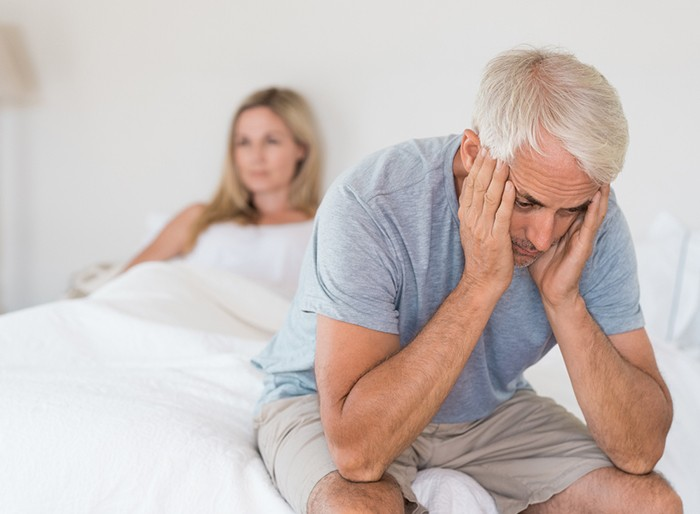Introduction
Did you know that your sleep patterns play a crucial role in your sexual health? While most men focus on diet, exercise, and supplements to maintain erectile function, sleep remains an underrated factor. Poor sleep can lead to erectile dysfunction (ED), reduced libido, and even hormonal imbalances. In this article, we’ll explore how your sleep cycle affects your erections, the science behind it, and practical steps to improve your sexual health through better sleep habits.
The Science Behind Sleep and Erections
Your body follows a natural circadian rhythm, which influences hormone production, blood circulation, and overall health. One of the most critical hormones affected by sleep is testosterone, which plays a key role in maintaining healthy erections.
During deep sleep, particularly in the REM (Rapid Eye Movement) stage, men experience nocturnal penile tumescence (NPT), also known as sleep erections. These nighttime erections serve as a natural indicator of good vascular and neurological function. A disruption in REM sleep means fewer sleep erections, signaling potential problems with erectile function.
How Sleep Deprivation Affects Erectile Function
1. Reduced Testosterone Production
Testosterone is predominantly released during sleep, particularly in the first few hours of deep sleep. When you sleep less than 6 to 7 hours per night, testosterone production decreases, leading to lower libido and weak erections. Studies show that men with restricted sleep experience up to a 15% drop in testosterone levels.
2. Increased Stress and Cortisol Levels
Sleep deprivation raises cortisol levels, the primary stress hormone. Elevated cortisol suppresses testosterone production and affects blood circulation, two key factors for maintaining firm erections.
3. Impaired Blood Circulation
Erections depend on proper blood flow. Sleep deprivation increases blood pressure and leads to poor circulation, making it difficult to achieve and sustain an erection. Additionally, lack of sleep is linked to conditions such as obesity, diabetes, and cardiovascular diseases, all of which are risk factors for ED.
4. Disrupted Dopamine and Serotonin Levels
Sleep plays a significant role in balancing neurotransmitters like dopamine and serotonin, which regulate mood and arousal. Sleep deprivation leads to mood swings, anxiety, and depression, all of which negatively impact sexual desire and performance.
Sleep Disorders and Erectile Dysfunction
Several sleep disorders directly affect erectile function:
- Obstructive Sleep Apnea (OSA): Men with OSA experience interrupted breathing during sleep, leading to oxygen deprivation. This condition has been closely linked to an increased risk of ED.
- Insomnia: Chronic insomnia disrupts testosterone production and increases cortisol, leading to poor erections.
- Restless Leg Syndrome (RLS): Studies suggest that men with RLS are more likely to experience ED due to dopamine imbalances.
How to Improve Sleep for Better Erections
1. Maintain a Consistent Sleep Schedule
Going to bed and waking up at the same time every day helps regulate your body’s circadian rhythm. Aim for 7-9 hours of quality sleep per night.
2. Optimize Your Sleep Environment
- Keep your bedroom dark and quiet.
- Maintain a cool room temperature.
- Invest in a comfortable mattress and pillow.
- Reduce blue light exposure from screens at least one hour before bedtime.
3. Reduce Stress Before Bed
Engage in relaxation techniques such as:
- Meditation
- Deep breathing exercises
- Reading a book
- Taking a warm bath
4. Avoid Stimulants Before Bedtime
- Reduce caffeine and nicotine intake at least 4-6 hours before sleep.
- Avoid heavy meals and alcohol late at night as they disrupt sleep cycles.
5. Exercise Regularly
Regular physical activity promotes better sleep and improves blood circulation, both of which contribute to stronger erections. However, avoid intense workouts right before bed, as they may disrupt sleep.
6. Consider Natural Sleep Aids
If you struggle with sleep, natural remedies such as magnesium, melatonin, chamomile tea, and valerian root can help promote relaxation and improve sleep quality.
When to See a Doctor
If improving your sleep habits doesn’t lead to better erections, it may be time to consult a medical professional. Underlying conditions such as low testosterone, cardiovascular issues, or hormonal imbalances may require medical intervention. A sleep study can also help diagnose sleep disorders like obstructive sleep apnea, which significantly impacts erectile function.
Conclusion
Your sleep patterns are more powerful than you think when it comes to sexual health. By prioritizing quality sleep, you can boost testosterone levels, improve blood circulation, and reduce stress, all of which contribute to stronger and longer-lasting erections. If you’re struggling with ED and suspect sleep may be a factor, start by optimizing your sleep routine.
For more expert tips on men’s sexual health, visit Elite Erectile Care and explore our resources designed to help you regain confidence in the bedroom.

